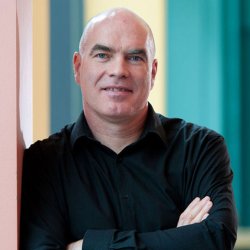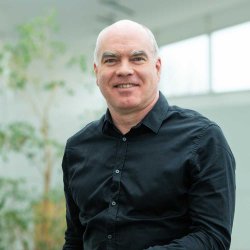Meet the academic: Professor Zsolt Podolyak
Professor Zsolt Podolyak, Programme Leader for our MSc Nuclear Science and Applications, explains how a masters at Surrey can open up a world of possibilities for a career in physics.

Please introduce yourself.
I am a physicist who has lived and worked in four different countries. I find it interesting to compare these places; often something unthinkable in one place is completely normal in others. I think that knowing other cultures can keep us open-minded, which is an important attribute in academia.
What’s your favourite memory of being a student?
The university years are the years of freedom. I was old enough to do what I wanted, but too young to have responsibilities for others. I remember the discussions with my friends about physics, philosophy and the opposite sex, during semesters and long summer holidays.
How and why did you become a professional academic?
In secondary school, my class got caught selling a football game (which was not allowed). The head teacher wanted to hand out a punishment, and because he taught physics he made me do extra lessons in it. But far from being a punishment, I found it interesting. Consequently I became a physicist and an academic.
A masters opens up new possibilities. Our students are very well qualified for jobs related to radiation and nuclear physics.
What excites you most about your current role?
Meeting students arriving at the University of Surrey from all over the world. When we explain to them what they will learn during their time with us, they cannot believe that they'll be able to take it all in, but often they absorb even more understanding than expected and they become experts in radiation-related areas.
What is your particular area of academic expertise, and why are you passionate about it?
I am an experimental nuclear physicist. I measure properties of nuclei, such as their masses and lifetimes. Even such basic properties are extremely difficult to predict theoretically, but they are very important as they determine how the chemical elements were/are made in the universe, or which radioisotopes can be used for cancer treatment.
Why should people study at postgraduate level in your academic area?
A masters opens up new possibilities. The Nuclear Science and Applications MSc students are very well qualified for jobs related to radiation and nuclear physics (and their applications). It prepares them for rewarding careers in the health sector, in the energy sector, in research…
What are you looking for in a postgraduate student?
The attitude of the student is the most important. Those who are interested in the subject and are willing to search for answers will do very well as masters students – and also later in life.
Does a particularly good memory of your time at Surrey stand out for you?
I have so many good memories, it's difficult to choose one. Maybe seeing the smiley faces on graduation days!
Find out more about our MSc Nuclear Science and Applications programme and other postgraduate degrees.
